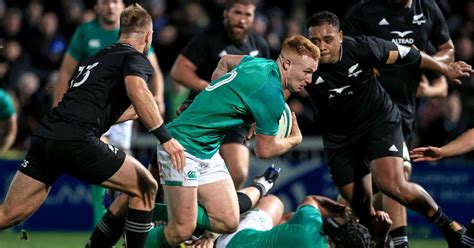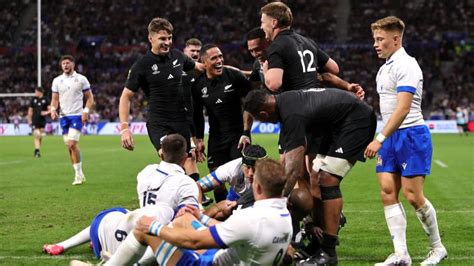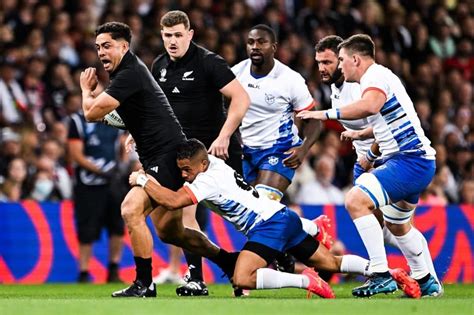The Rugby World Cup 2023 has been a thrilling showcase of skill, strategy, and raw athleticism, bringing together the world’s top teams in a battle for supremacy. This year’s tournament not only delivered unforgettable matches but also set new standards in rugby excellence. From breathtaking plays to groundbreaking tactics, the competition has left fans and analysts alike in awe. In this in-depth analysis, we will explore the tournament’s key statistics, dissect standout matches, highlight the top performers, and delve into the tactical strategies that defined this year’s competition. Finally, we’ll examine the tournament’s impact on global rugby and make predictions for the future.
Delve into this topic with rplblogs.com for a comprehensive understanding.
1. Tournament Overview and Key Statistics
The Rugby World Cup 2023, held across iconic stadiums, united 20 of the world’s top rugby nations in a month of thrilling competition. With a total of 48 matches played, the tournament captivated fans worldwide, adding to the sport’s rich history. The event witnessed a record-breaking number of tries, as teams showcased their remarkable speed, strength, and tactical prowess.
The tournament featured a high level of attacking play, with an average of 4.3 tries per match. This offensive firepower was exemplified by the top point-scoring team, which accumulated over 300 points throughout the competition. However, defensive strength was also evident, with multiple teams boasting an average tackle success rate exceeding 85%.
The tournament featured several heart-stopping finishes, with numerous matches decided by a razor-thin margin of less than 5 points. This year’s World Cup also saw a significant increase in global viewership, showcasing the ever-growing popularity and international appeal of rugby.

2. Standout Matches and Memorable Moments
The Rugby World Cup 2023 was a tournament brimming with unforgettable matches, each adding a chapter to its historical narrative. One such encounter, a clash between rugby titans New Zealand and South Africa, stood out as a testament to both teams’ tactical prowess and physical dominance. The game, decided in the final moments with a dramatic, last-minute try, left fans captivated and on the edge of their seats.
Japan’s stunning victory over England was another highlight of the tournament. The match defied expectations, with Japan’s relentless pace and precise play overwhelming the English defense. This upset, one of the biggest in World Cup history, left a lasting impression.
The quarterfinals provided their share of drama, especially in the France-Australia clash. A series of stunning plays and tactical adjustments led to a nail-biting conclusion. These moments, where the result was uncertain until the very end, epitomized the tournament’s unpredictability and excitement. As a result, Rugby World Cup 2023 will undoubtedly be etched into the memories of fans around the globe.

3. Top Performers and Player Highlights
The Rugby World Cup 2023 was a stage for both individual brilliance and team triumphs. Several players etched their names into tournament history with unforgettable performances. Among them was New Zealand’s fly-half, renowned for his tactical intelligence and accurate kicking. His leadership was instrumental in propelling his team to the latter stages of the competition. His ability to dictate the game’s pace and make pivotal decisions under pressure was a hallmark of New Zealand’s campaign.
The South African flanker was a dominant force, renowned for his tireless energy and commanding presence on the field. His tackling and work at the breakdown were unparalleled, earning him recognition as a top defensive player in the tournament.
Japan’s star winger was a standout performer, captivating fans with his lightning speed and nimble footwork. His knack for finding openings in the opposition’s defense resulted in several crucial tries that secured victory for his team. These displays cemented his reputation as one of the most thrilling players in the game.
France’s captain demonstrated outstanding leadership throughout the tournament, consistently motivating his team in critical moments. His performance in the quarterfinals was particularly impressive, showcasing his strategic brilliance and calm under pressure. These top players not only shone individually but also played a crucial role in their team’s success, leaving a lasting mark on the World Cup.

4. Tactical Analysis and Team Strategies
The Rugby World Cup 2023 showcased a remarkable diversity of tactics, with teams employing strategies that spanned the spectrum from traditional to innovative. New Zealand, known for their dynamic and expansive style, continued to prioritize rapid ball movement and wide play. This enabled them to outmaneuver opponents by seamlessly transitioning from defense to attack in a matter of seconds, keeping them perpetually on the back foot and cementing their reputation as one of the most threatening forces in open play.
In contrast, South Africa emphasized physicality and territorial control. Their strategy revolved around a formidable forward pack, dominant in scrums and lineouts. They complemented this with a powerful kicking game, aiming to gain ground and put pressure on their opponents. This approach enabled them to dictate the pace of matches and wear down their adversaries.
Japan’s strategy, characterized by relentless speed and precise passing, caught many off guard. Their high-tempo play and pinpoint passes, aimed at the edges of opposing defenses, unsettled even the most seasoned teams, paving the way for historic upset victories.
France’s success stemmed from a blend of structured play and individual brilliance. Their tactical adaptability allowed them to shift seamlessly between distinct styles. When necessary, they could switch from a tight, forward-oriented approach to a more fluid, backline-focused attack, enabling them to effectively counter diverse opponents. This flexibility was instrumental in their deep run in the tournament.
5. Impact on Global Rugby and Future Predictions
The Rugby World Cup 2023 has significantly impacted the global rugby landscape, highlighting the sport’s surging popularity and heightened competitive level. The tournament showcased the emergence of non-traditional rugby nations, especially Japan, whose success has ignited increased interest and investment in the sport throughout Asia. This shift indicates a broader global expansion, with rugby gaining traction in regions previously dominated by other sports.
South Africa and New Zealand solidified their positions as rugby giants with dominant performances, yet the rise of new challengers hints at a more fiercely contested future. The innovative tactics and diverse approaches witnessed throughout the tournament are poised to inspire coaching methods globally, compelling teams to embrace change and refine their strategies.
The successful staging of the 2023 World Cup is anticipated to have a positive impact on grassroots development, especially in nations where rugby is still emerging. As the sport’s global reach continues to grow, future tournaments are likely to feature a more balanced playing field, leading to less predictable and even more thrilling contests in the years ahead.
The Rugby World Cup 2023 has been a defining chapter in the sport’s history, blending thrilling matches with tactical brilliance and unforgettable individual performances. As rugby continues to expand its global reach, the lessons and innovations from this tournament will shape the future of the game. The competition not only celebrated the sport’s rich traditions but also highlighted its evolving nature, setting the stage for an even more dynamic and competitive landscape in the years ahead.
rplblogs.com
